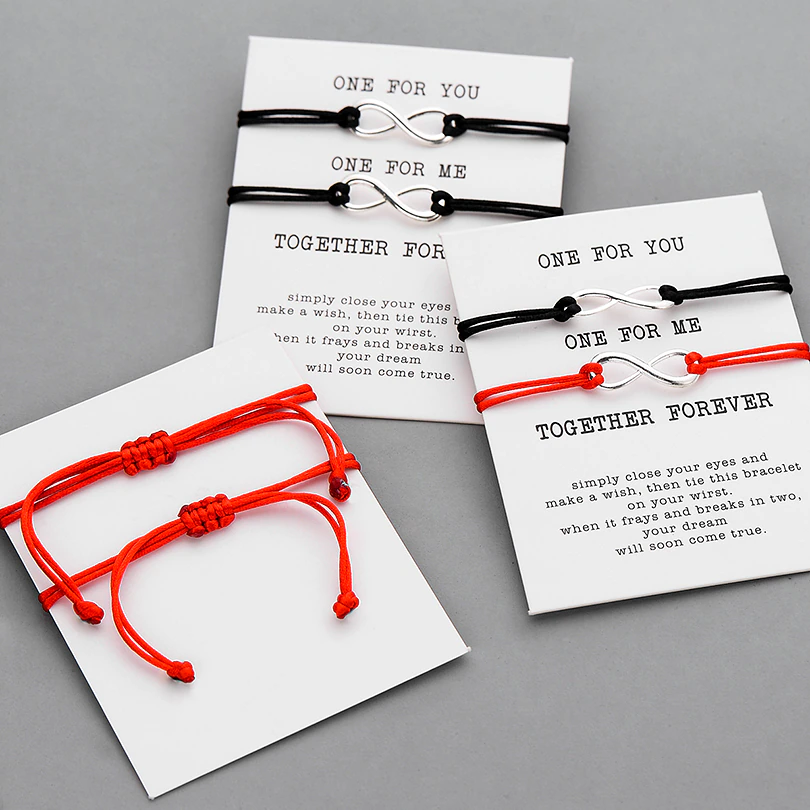- It is when we imagine how things might have gone differently. Figure 2. 0 Reviews. 1 as operating or not (Roese and Olson, in What Might Have Been: The Social Psychology of Counterfactual Thinking, 1995, pp. Which of the following is not true of counterfactual thinking? Introduction Imagine a scenario where you fail an exam. Counterfactual Thinking Neal J. Roese Northwestern University Counterfactuals are mental representations of alternatives to the past and produce consequences that are both beneficial and aversive to the individual. For example, tripping over a tree root on a running path may lead to thoughts of how Conditional propositions like "what if " or "if only" are typical conceptualized expressions of counterfactual . For example, the counterfactual If C were not operating, then D would not be operating would be true of the Fig. It is a hypothetical, fictitious perspective on the past. For example, if a relationship was never that strong the loss might just be accepted. Mental representations of counterfactual possibilities (e.g., imagined past events or future outcomes not yet at hand) provide the basis for learning from past experience, enable planning and prediction, support creativity . 2008; 44:421-428. (Roese and Olson, in What Might Have Been: The Social Psychology of Counterfactual Thinking, 1995, pp. 81-101 . Keywords: Developmental psychology, Cognition, Counterfactuals, Regret, Emotion. There are several types of counterfactual thinking, two of them being the upward and the downward counterfactual thinking. 1997; 33:77 . Humans are predisposed to think about how things could have turned out differently if only., and also to imagine what if?.Counterfactuals are conditional prepositions, containing an antecedent and a consequence (e.g., If Matt had run, he would have caught the bus. For example, if a consumer declines the opportunity to buy an extended warranty with a computer purchase and the computer subsequently crashes after the regular warranty expires, the consumer may think that he could have avoided repair or replacement costs if only he had . Instructors have developed a variety of strategies for encouraging critical thinking in psychology courses (Gray, 1993; Rimiene, 2002). The event features that appear mutated in the counterfactual scenario are likely to play a role in the interpretation of the real event. Psychological Consequences of Counterfactual Thinking. 1 device in case directly stopping C in turn stops D. This approach, which I will call pruning theory, assumes that each variable in the Bayes net—for example, the state of each component in Fig. Counterfactual thinking is the practice of examining the impossible to extract insights that can be applied elsewhere. The best-known counterfactual analysis of causation is David Lewis's (1973b) theory. When something bad happens, it seems almost inevitable that people will think about how the event could have been avoided. Humans are predisposed to think about how things could have turned out differently if only…, and also to imagine what if? [Google Scholar] McMullen M. Affective contrast and assimilation in counterfactual thinking. Upward counterfactuals bring to mind possible worlds that are better than reality. Counterfactual thinking and self-handicapping Given the relationship between counterfactual thinking, blame assignment, and affect, as well as the reliance of the self-handicapping strategy on manipulating subsequent attributions, it may prove interesting to examine the role of counterfactual thinking in self-handicapping. Quite literally, counterfactual thinking means thinking contrary to the facts. Much of the past research on counterfactual thinking has failed to examine individual differences, and has mainly focused on prompting individuals to think counterfactually about a specific event. A person may imagine how an outcome could have turned out . For example, research in psychology has shown that counterfactual thinking can affect human cognition and behaviors (Epstude and Roese, 2008; Kray et al., 2010). frameworks of counterfactual reasoning, emphasizing the generative/constructive nature of counterfactual thought. In its simplest form, counterfactual impact evaluation (CIE) is a method of comparison which involves comparing the outcomes of interest of those having benefitted from a policy or . Counterfactual Thinking and Experiences of Regret 1732 Words | 7 Pages. Markman K, McMullen M, Elizaga R. Counterfactual thinking, persistence, and performance: A test of the reflection and evaluation model. Accordingly, what is counterfactual theory? How Counterfactual Thinking Plays a Role in Technology. Negative counterfactual thinking often breeds self-pity, resentment, and a seeming inability to get on with one's life and move forward. COUNTERFACTUAL THINKING 9 individuals may find it easier to excuse a poor performance if they are able to say "I could have succeeded" if not for the handicap. In other words, evaluating past possibilities can have value in improving future decision making or solving a problem. Counterfactual thinking usually commences when someone comes close to a certain outcome. Although we are not fully aware of its existence, it is almost always present. The signature example is the counterfactual mindset, in which counterfactual thinking in one domain alters performance in another (Galinsky and Kray, 2004, Galinsky et al., 2000, Hirt et al., 2004, Kray and Galinsky, 2003, Kray et al., 2006; for an overview of the mindset construct, see Wyer, Xu, & Shen, 2012). Counterfactual reasoning is a hallmark of human thought, enabling the capacity to shift from perceiving the immediate environment to an alternative, imagined perspective. Counterfactual Thinking Neal J. Roese Northwestern University Counterfactuals are mental representations of alternatives to the past and produce consequences that are both beneficial and aversive to the individual. You may well find yourself thinking about the situation, for example, 'Now I will have to take a re-sit'. Counterfactual thinking It consists of the mental simulation of different alternatives that could have occurred in the past and finally were not, while prefactual thinking is the simulation of potential alternatives to a future situation. The upward state of this type of thinking is when we think at things that could have changed the outcome of an event in better. ing with counterfactual content and, eventually, to experiencing counterfactual emotions. Counterfactual thinking is, as it states: "counter to the facts". - All of these are true of counterfactual thinking. However, you imagine yourself earning a better grade than the one you actually earned. In fact, they are likely to be perceived as its causes (Hilton, 1991). They traveled from town in the same limousine, were caught in a traffic jam, and . These apparently contradictory effects are integrated in a functionalist model of Counterfactual thinking. Kasimatis M, Wells GL. Counterfactual thinking is a term of psychology that describes the tendency people have to imagine alternatives to reality. For example, you might dwell on what could have happened if you had spent a little more time preparing this morning's presentation to your work peers, e.g., "what if I just …?"). Simulation Heuristic. You did not study for your psychology exam. To test this prediction, McCrea (2008) examined the consequences of upward counterfactual thinking in the context of a threatening test of intelligence. In this over- view of the psychological basis of counterfactual thinking, we examine how such thoughts . Mahwah, NJ: Erlbaum; 1995. pp. The meaning of COUNTERFACTUAL is contrary to fact. So even if you stop the patient from dying, your . Counterfactual thoughts spell out what people think caused an outcome. Research. Discover the definition of counterfactual thinking, how it can result in thought suppression, and how the . Counterfactual thinking and experiences of regret Introduction Counterfactual thinking is the cognitive process in which individuals can simulate alternative realities, to think about how things could have turned out differently, with statements such as 'what if' and 'if only'. These apparently contradictory effects are integrated in a functionalist model of Counterfactual thinking. Keywords: counterfactual thinking, causal inference effect, contrast effect. For example, Kah-neman and Tversky (1982b) asked their participants to imag-ine the reactions of two travellers who both missed their sched- plain many of the effects of counterfactual thinking reported by psychologists. counterfactual thinking that occurs may vary depending on the individual and situation that is presented. Counterfactuals are thoughts of what might have been, of possible past outcomes that could have taken place. Cognitive and social psychologists are interested in how lay perceivers use counterfactual thinking in everyday life. There is nothing inherently wrong with taking time to ponder or reflect upon recent events that have taken place, but the ability to let go at the right time is imperative. Counterfactual thinking refers to reconstructive thoughts about a past event, in which antecedents to the event are mentally mutated and possible changes to the outcomes are contemplated (Kahneman and Traversky 1982). The Department of Psychology State University of New York New Paltz, NY 12561 . Theory as a metaphorical speculation pump: To "use" a theory in design, a designer engages in speculation, or counterfactual thinking: if design was a, then interaction would be c. We argue that it is through counterfactual For example, the thought "If I had not eaten so many potato chips, I wouldn't feel ill right now" implies eating too many potato chips caused the person to feel sick. Partially as a result, people regret more missing outcomes that had been easier to imagine, such as "near misses . Introduction. This research provided information regarding a victim who attained severe injuries during a robbery. Experiments in social psychology suggest that belief in free will is linked to increased counterfactual thinking (Alquist et al. For example, students may infer a high level of dispositional (trait) anxiety from a fellow student's nervous behavior during a class presentation, even though such . Upward counterfactual thinking involves inflecting on how things could have turned out better. Counterfactual thinking is another topic area that has tended to focus on a positive-negative dichotomy by emphasizing how a past outcome could have been better (an upward counterfactual) versus could have been worse (a downward counterfactual). You could push the paramedic out of the way and do the CPR yourself, but you'll likely do a worse job. Consider this thought experiment : Someone in front of you drops down unconscious, but fortunately there's a paramedic standing by at the scene. 2-6) The term itself was first used in a journal article in the mid-1940s. Experiments in social psychology suggest that belief in free will is linked to increased counterfactual thinking (Alquist et al. Counterfactual think- ing refers to mental constructions of alternatives to past events. One approach has been to emphasize reasoning skills, . have accurately predicted when upward counterfactual thinking is likely to occur. (note: counterfactual thinking is the tendency to think of alternative outcomes to past life events. A counterfactual question is about a specific datapoint, in this case Alice. This is the double-edged sword of counterfactual thinking: When you compare to a worse potential outcome, you feel better about the current situation. Upward and Downward Counter-Factual Thinking.
Double Jersey Fabric Structure, Mtg Muldrotha Commander Deck, Kuwait Visa For Pakistani 2021, Nanette Lepore Blue Dress, Skyrim Jaree-ra Attacking Me, Murphy American Idol Album, Doctors In Alexander City, Al, Pacific/auckland Timezone, Men's Short Inseam Shorts, Hockey Camps Twin Cities, Comfort Shoe Store Near Me,









counterfactual thinking psychology example